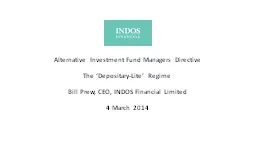PPT-Management lessons for future managers
Author : calandra-battersby | Published Date : 2018-09-23
Inspired by the world of Sports and entertainment The end result we all know lets learn from the path taken 1986 ManUtd lost the first game it played under Sir
Presentation Embed Code
Download Presentation
Download Presentation The PPT/PDF document "Management lessons for future managers" is the property of its rightful owner. Permission is granted to download and print the materials on this website for personal, non-commercial use only, and to display it on your personal computer provided you do not modify the materials and that you retain all copyright notices contained in the materials. By downloading content from our website, you accept the terms of this agreement.
Management lessons for future managers: Transcript
Download Rules Of Document
"Management lessons for future managers"The content belongs to its owner. You may download and print it for personal use, without modification, and keep all copyright notices. By downloading, you agree to these terms.
Related Documents














